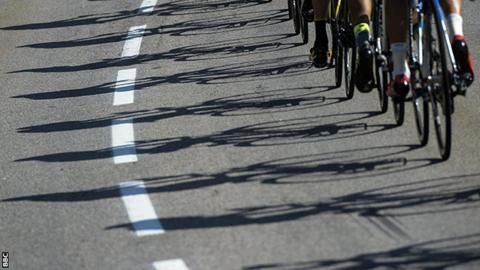
It is “doubtful” that crucial governance reforms for British Cycling will be approved next weekend, plunging the organisation into a financial crisis, a former chief executive says.
Peter King, who ran the governing body from 1997 to 2008, told the BBC that he expected the proposals to be rejected at an extraordinary general meeting of its national council on Saturday.
The government has warned British Cycling that funding is dependent on adoption of reforms designed to improve governance standards across sport.
But King believes that opposition among the organisation’s 130,000 members will mean the board fails to secure the 75% majority required to vote through the changes.
The background
Funding agency Sport England has allocated £17m to British Cycling to boost grassroots participation, while UK Sport is set to invest £26m for its Olympic and Paralympic teams’ preparations for Tokyo 2020.
But both sums hinge on complying with sports minister Tracey Crouch’s governance code. From November, boards of governing bodies must be more independent and diverse, and be “the ultimate decision-making body and exercise all of the powers of the organisation”.
British Cycling executives – including chairman Jonathan Browning and president Bob Howden – have been attending a series of regional meetings in a bid to convince members to support a package of reforms designed to meet the new standards.
These include:
- a reduction in the number of elected regional board directors from six to four
- permanent seats on the board for elected representatives from Scotland and Wales
- an increase in the number of openly recruited independent board members from three to four and an independent chair
- a limit for directors of three three-year terms, with six of the eight elected members on the current board forced to stand down.
Proposals are ‘too severe’
However, King says the board now faces a fight to get the measures passed.
“My original view was that the members would vote in favour of the proposals because of the threat of losing funding,” he said.
“But I think the feeling is now moving the other way, and from the meetings I’ve attended, I think it’s doubtful.
“People realise money will be stopped, but they’re prepared to do that. It’s right that we modernise, but there’s a sense the changes are too severe, have been rushed through, and that members are losing control, with too much authority residing with the board, not the national council.”
A British Cycling spokesperson told BBC Sport: “These changes to our governance are necessary, timely and in the best interests of our members whether they race, help out at their local club or just love riding their bike.
“It is our belief that by ensuring that our organisation has professional, balanced governance, our sport will benefit – from the grassroots to the podium.”
‘People have lost confidence’
One of the country’s best-funded and most successful sports governing bodies, British Cycling has been the driving force behind the country’s unprecedented success in recent Olympic and Paralympic Games.
But it was thrown into crisis last year amid claims by former riders and staff of bullying, and a UK Anti-Doping investigation into allegations of wrongdoing in the sport.
Last month, following a year-long investigation, an independent review concluded cycling “lacked good governance” and many staff reported “a culture of fear”.
British Cycling has apologised for its failings, overhauled its leadership team, and introduced an action plan. With an annual general meeting not scheduled until November, the board called an EGM [extraordinary general meeting] in order to get the reforms approved.
“People have lost confidence in the board and its ability to put us back on the straight and narrow,” said King.
“I worry about the future whichever way the vote goes. We’re in a bigger crisis now than 20 years ago [when, with British Cycling close to bankruptcy, there was a vote of no confidence in the board].”
King, who represents the south-east region on the national council, said he may stand for election as a board director.
“I am concerned about the way things are going and if I can play a role in bringing things back in line then I will.”
Mixed results
To date, the government has had mixed results persuading sports to adopt its Code for Sports Governance.
In May, the Football Association’s council finally approved reforms, having been threatened with a £15m funding cut.
However, last week the national governing body for table tennis became the first to reject the government’s standards, with its full £9m Sport England funding award suspended as a consequence.



